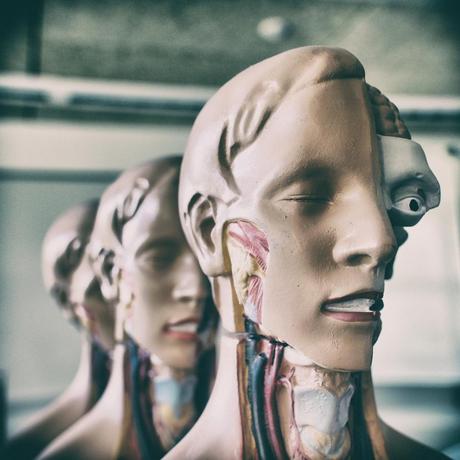“Creepy” is the word often used, even by the New York Times, regarding conversations with AI. Artificial Intelligence gets much of its data from the internet and I like to think, that in my own small way, I contribute to its creepiness. But, realistically, I know that people in general are inclined toward dark thoughts. I don’t trust AI—actual intelligence comes from biological experience that includes emotions—which we don’t understand and therefore can’t emulate for mere circuitry—as well as rational thought. AI engineers somehow think that some Spock-like approach to intelligence will lead to purely rational results. In actual fact, nothing is purely rational since reason is a product of human minds and it’s influenced by—you guessed it—emotions.
There’s a kind of arrogance associated with human beings thinking they understand intelligence. We can’t adequately define consciousness, and the jury’s still out on the “supernatural.” AI is therefore, the result of cutting out a major swath of what it means to be a thinking human being, and then claiming it thinks just like us. The results? Disturbing. Dark. Creepy. Those are the impressions of people who’ve had these conversations. Logically, what makes something “dark”? Absence of light, of course. Disturbing? That’s an emotion-laden word, isn’t it? Creepy certainly is. Those of us who wander around these concepts are perhaps better equipped to converse with that alien being we call AI. And if it’s given a robot body we know that it’s time to get the heck out of Dodge.
I’m always amused when I see recommendations for me from various websites where I’ve shopped. They have no idea why I’ve purchased various things and I know they watch me like a hawk. And why do I buy the things I do, when I do? I can’t always tell you that myself. Maybe I’m feeling chilly and that pair of fingerless gloves I’ve been thinking about for months suddenly seems like a good idea. Maybe because I’ve just paid off my credit card. Maybe because it’s been cloudy too long. Each of these stimuli bear emotional elements that weigh heavily on decision making. How do you teach a computer to get a hunch? What does AI intuit? Does it dream of electronic sheep, and if so can it write a provocative book by that title? Millions of years of biological evolution led to our very human, often very flawed brains. They may not always be rational, but they can truly be a thing of beauty. And they’re unable to be replicated.

Photo by Pierre Acobas on Unsplash
" data-orig-size="3424,3424" sizes="(max-width: 1024px) 100vw, 1024px" data-image-title="pierre-acobas-nbD0VmKnPrI-unsplash" data-orig-file="https://sawiggins.files.wordpress.com/2021/02/pierre-acobas-nbd0vmknpri-unsplash.jpg" data-image-description="" data-image-meta="{"aperture":"0","credit":"","camera":"","caption":"","created_timestamp":"0","copyright":"","focal_length":"0","iso":"0","shutter_speed":"0","title":"","orientation":"0"}" data-medium-file="https://sawiggins.files.wordpress.com/2021/02/pierre-acobas-nbd0vmknpri-unsplash.jpg?w=300" data-permalink="https://steveawiggins.com/2021/02/07/how-clean-is-your-brain/pierre-acobas-nbd0vmknpri-unsplash/#main" alt="" srcset="https://sawiggins.files.wordpress.com/2021/02/pierre-acobas-nbd0vmknpri-unsplash.jpg?w=1024 1024w, https://sawiggins.files.wordpress.com/2021/02/pierre-acobas-nbd0vmknpri-unsplash.jpg?w=2048 2048w, https://sawiggins.files.wordpress.com/2021/02/pierre-acobas-nbd0vmknpri-unsplash.jpg?w=150 150w, https://sawiggins.files.wordpress.com/2021/02/pierre-acobas-nbd0vmknpri-unsplash.jpg?w=300 300w, https://sawiggins.files.wordpress.com/2021/02/pierre-acobas-nbd0vmknpri-unsplash.jpg?w=768 768w" class="wp-image-17005" data-large-file="https://sawiggins.files.wordpress.com/2021/02/pierre-acobas-nbd0vmknpri-unsplash.jpg?w=1020" />Photo by Pierre Acobas on Unsplash